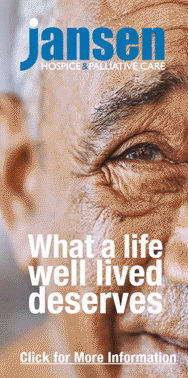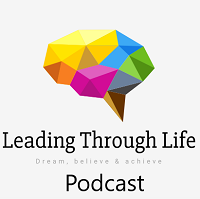From the Counseling Center: Setting Boundaries as a Loving Act

By Pia Scaglione, Psy.D., The Counseling Center
Feb. 22, 2024: When we mention boundaries in relationships, many often think first of romantic relationships—boundaries that keep us physically and emotionally safe in potentially toxic intimate encounters. However, setting boundaries can be an important part of any relationship. Which boundaries we need to be healthy are unique to each person and situation, and may change over time, making them complex and dynamic. Maintaining healthy boundaries can be a powerful and loving act for us, both as individuals and for our relationships.
The purpose of healthy boundaries is to protect not only our selves but also the quality of our relationships with others. Boundaries are important in keeping oneself safe and separate in order to consider and meet one’s needs. In setting boundaries, we identify the line between our self and others, offering support but not taking on the other person’s emotional work.
There are different kinds of boundaries—between co-workers, friends, parents and children, and these can vary within and between cultures. Some boundaries are physical or emotional; others have to do with how we spend our time. It’s the responsibility of the person setting the boundaries to identify, communicate and enforce them.
An example of boundary setting between co-workers might be if one person is calling a colleague often outside of work hours, or requesting excessive help with a project, and limits need to be created. When one worker insists on bringing her “whole self” to work, she might want to share personal aspects of herself that her co-workers don’t necessarily feel comfortable receiving or reciprocating in a professional setting.
Sometimes friends need to understand and set boundaries. High school students transitioning to college who may be accustomed to immersive relationships in which everything is shared and agreed upon among their friends might find that new friends in college want space to feel or think differently, to define themselves separately.
The boundaries between parents and children often need to be renegotiated as children grow and become adults. For example, a daughter becoming a new mom, eager to establish her own routines and parenting style, might need to set boundaries with her own mother, who may show up unannounced to help or is eager to explain, “This is the way I did it.” However loving and well-intentioned, such behavior can feel controlling; setting limits, despite the fear that one’s mother will feel rejected, can be difficult but important.
Boundary setting can feel like a rejection in a relationship if the boundaries were previously absent or fluid, or previous attempts at boundary setting were not respected. Setting those limits might save the relationship from deteriorating into one of conflict and resentment.
Some boundaries can be physical, such as when one is visiting one’s family and the old but familiar dynamics are challenging. A person living away from their family of origin may decide to visit for a few days but not for a week or stay in a nearby hotel rather than the family home. Or, if established boundaries are crossed, one might give oneself permission to leave the situation.
Other boundaries can be emotional. One might love one’s family but hate their politics and keep that subject permanently off limits to preserve the peace. Other topics that pose emotional triggers might also be called out of bounds.
Setting time limits can apply to one’s professional life (I will answer texts and emails during X hours but not during Y hours) or to one’s love life (I’ll check in with you twice a day but not throughout the day).
Cultural differences can result in conflicting expectations regarding boundaries, even within families. The children of immigrants might not want to adhere to their parents’ traditional boundaries regarding authority, courtship, lifestyle, or degrees of independence. Similarly, immigrant families navigating an unfamiliar culture might come into conflict over misunderstandings about where boundaries lie. This can also be evident when colleagues from various backgrounds come together and expectations regarding behavior differ.
Relationships that may be at risk of estrangement can often be preserved when thoughtful boundaries are established and maintained. Over time, as conflict is minimized, resentments fade, and trust is reestablished, boundaries can sometimes be renegotiated. Relationships with healthy boundaries established often emerge stronger and more enduring.
Setting boundaries may be difficult at first, but once you begin to think about them, you might begin to see their benefit in many situations—and experience them as loving acts, for all the parties in the relationship.
The Counseling Center in Bronxville offers therapy for individuals, couples, and families, both in person and through telehealth (online or by phone). Please feel free to reach out if we can help, by calling Dr. Jennifer Klein, 914 793, 3388. To keep abreast of ongoing information and activities at The Counseling Center, please visit our website at https://counselingcenter.org/.
Health Directory
Maxwell Institute
Intensive and clinic-level outpatient chemical dependency treatment and education services.
92 Yonkers Ave
Tuckahoe, NY 10707
(914) 337-6033
777 White Plains Road
Scarsdale, NY
Phone: 914. 472. 9090
website
Lawrence Home Care of Westchester
670 White Plains Road
Scarsdale, NY 10707
(914) 787-6158
www.lawrencehomecare.org

Jansen Hospice and Palliative Care
NewYork-Presbyterian Westchester
NewYork-Presbyterian Westchester provides access to primary care physicians and specialists from ColumbiaDoctors, the faculty practice of Columbia University Irving Medical Center and NewYork-Presbyterian Medical Group Westchester.
The 288-bed facility is home to a cancer center, maternity center, breast health center, two cardiac catheterization labs, and a state-designated Stroke Center.
NYP Westchester provides advanced services such as minimally invasive surgery, state-of-the-art orthopedic care, and access to clinical trials.
Click here to see areas of care.
55 Palmer Avenue in Bronxville
914-787-1000 Main














